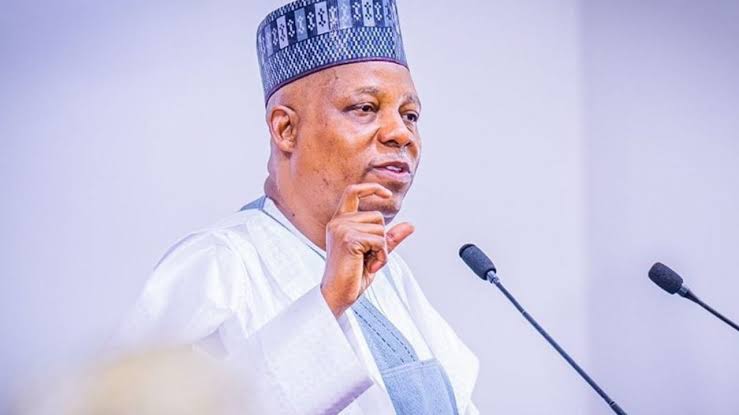Nigeria’s federal government has launched ambitious plans to modernize its agriculture sector through large-scale agribusiness hubs, with Vice President Kashim Shettima declaring the initiative a cornerstone of the nation’s economic revitalization. During the groundbreaking ceremony for the Oyo State Agribusiness Industrial Hub in Ijaiye on Saturday, government officials emphasized the project’s role in driving industrialization, job creation, and global competitiveness.
Represented by Agriculture Minister Abubakar Kyari, Shettima described the hub as part of the broader Special Agro-Industrial Processing Zone (SAPZ) program, a collaboration between Nigeria’s federal and state governments and international financiers, including the African Development Bank (AfDB), International Fund for Agricultural Development (IFAD), and Islamic Development Bank (ISDB). The SAPZ initiative, he stressed, aligns with President Bola Tinubu’s Renewed Hope Agenda, aimed at transforming raw agricultural outputs into value-added products to boost rural economies and reduce reliance on imports.
“This isn’t merely about infrastructure—it’s a reimagining of Nigeria’s future,” Shettima said, framing the project as a gateway to leveraging the country’s vast farm resources for industrial growth. He announced plans to expand SAPZ projects to 27 additional states by 2026, starting with an initial rollout in 10 states. The federal government is finalizing financing agreements with partners to scale the program nationally.
Oyo State Governor Seyi Makinde underscored the hub’s significance for local development, noting it is the third such facility launched under his administration—following earlier projects in Fashola and Eruwa—with three more planned for Ipapo, Iresa-adu, and Ilora. He linked agricultural modernization to broader economic stability, stating, “A resilient economy cannot exist without a robust farming sector.” Designs for future hubs will be completed before his term ends in 2027, ensuring continuity for the next administration.
AfDB President Akinwumi Adesina, hailed by Shettima as a “continental champion” of agricultural reform, detailed the bank’s $934 million investment in SAPZ initiatives across 11 African nations, including 28 active sites. The program aims to curb post-harvest losses—estimated at billions annually in Nigeria alone—by strengthening supply chains, enhancing agro-processing capabilities, and creating job opportunities in rural areas. Adesina praised Tinubu’s administration for its commitment to the partnership, calling it a model for Africa’s economic transformation.
The Ijaiye hub marks a critical step in Nigeria’s push to diversify its economy beyond oil, with agribusiness increasingly seen as a engine for inclusive growth. By integrating smallholder farmers into industrial value chains and attracting foreign investment, officials hope to position the country as a leading agri-exporter while addressing food insecurity and unemployment. The project’s success, however, hinges on sustained collaboration between federal policies, state-level execution, and international funding—a challenge acknowledged by stakeholders as they race to turn agricultural potential into tangible prosperity.
